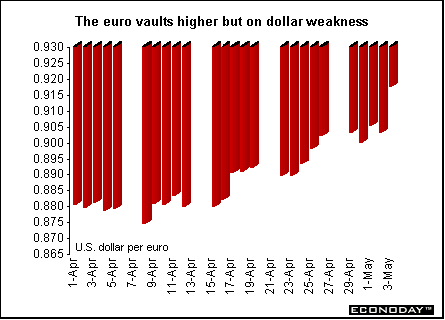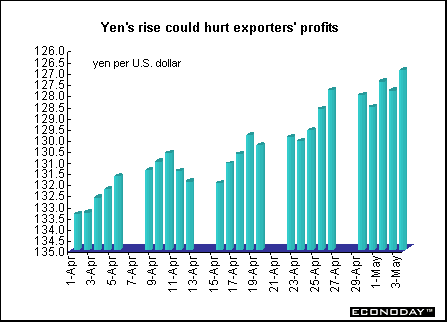 |

Currencies
Although the dollar had been dropping all last week, the pace accelerated Friday. Dealers reacted to disappointing U.S. economic data by aggressively selling the dollar against the major currencies - the Swiss franc, yen and euro. By the time the trading day was over, the dollar had set new six-month lows against major European currencies. The euro soared rapidly above 91 U.S. cents to a high for the year of 91.73 cents. Against the Japanese currency, the dollar fell more than a full yen, seeing intraday lows at ¥126.85. But while the outlook appears bleak for the dollar, analysts also point out that there isn't a lot of real enthusiasm for the dollar's rivals - especially the yen and euro - and suggested that the dollar's recent decline may not necessarily be the way of the future.

One of many factors that increased pressure on the dollar last week was U.S. Treasury Secretary Paul O'Neill. The markets believe that since the days of the Clinton administration's Treasury chief, Bob Rubin, the United States has had a "strong dollar" policy. But Secretary O'Neill refused to use those magic words in Congressional testimony last week, and instead said that finance ministers cannot affect the value of currencies except in the very short term. Investors, he said, would put their money in whatever country provides the best opportunities for profit - meaning they would buy the currency of that country to fund their investments. Market players immediately grabbed onto this remark as confirmation of their suspicion that the current administration has backed away from the strong dollar policy.
The yen continued to climb in value much to the consternation of Japanese government officials. With the Japanese economy barely showing some signs of life, no one wants anything to rock the boat. Thanks to rising exports - especially to the United States - an increase in the value of the yen could raise product prices and reduce exports. Similarly a higher yen hurts exporters' profits when they repatriate them. The yen also could be rising because of continued end of year flows.

For a fuller discussion of the dollar and what its current decline could mean, see this week's Short Take, which will be available on Wednesday, May 8.


Last Week's Highlights • Global Stock Market Indexes • Recap of Global Markets • Currencies • Indicator Scoreboard

The Bottom Line • Looking Ahead
|
 |